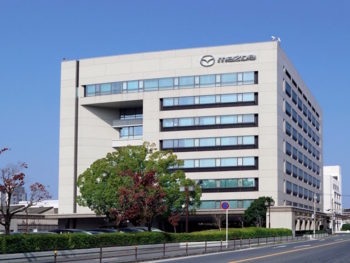Mazda to advance ICE engine efficiencies
Mazda has joined forces with Saudi Aramco, the state-owned oil company of the Kingdom of Saudi Arabia, and Japan’s National Institute of Advanced Industrial Science and Technology (AIST) to help develop a more efficient internal combustion engine and fuel for it.

Mazda, Saudi Aramco and AIST have launched a joint research project
Although the carmaker is developing electric and hybrid drivetrains, as part of an alliance in Japan, it’s also said that it expects internal combustion engines to remain pre-eminent for the next couple of decades, pointing to research by the International Energy Agency that suggests 84% of vehicles globally will still make use of combustion engines in 2035.
This includes for efficiency and environmental reasons; the carmaker has previously said that EVs offer less near-future potential for cutting CO2 emissions than improvements to combustion engines, owing to the way the energy is generated. Instead, it’s putting the focus on ‘well to wheel’ CO2 emissions (considering every step in the fuel life cycle from oil well to wheels on the road) and is already targeting a combustion engine with lower well-to-wheel CO2 emissions than an electric vehicle, as part of a suite of fuel-saving solutions to cater for varying global market needs.
Its these well-to-wheel considerations that are fuelling the collaborative research with Saudi Aramco and AIST to reduce overall CO2 emissions.
The project will see Saudi Aramco develop a fuel based on a refinery process that results in lower carbon dioxide emissions, and Mazda and AIST will research and develop a high-efficiency engine that runs on the fuel.

